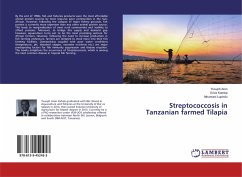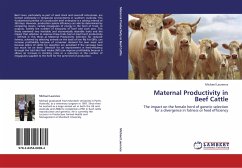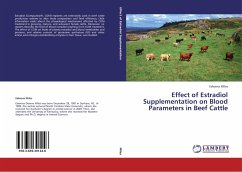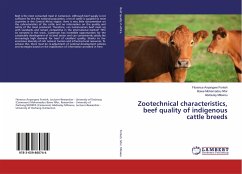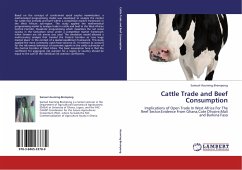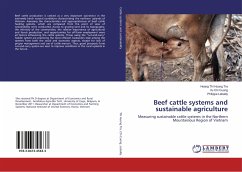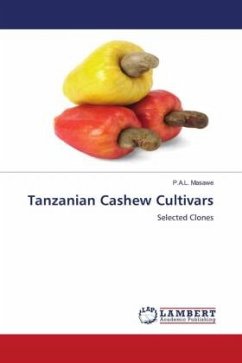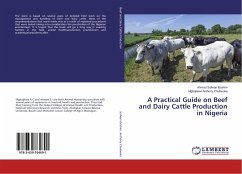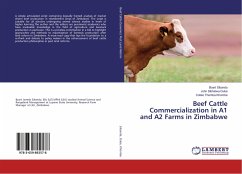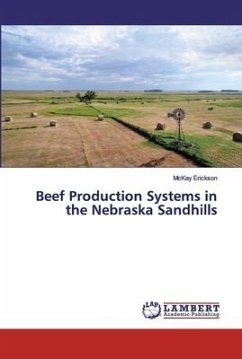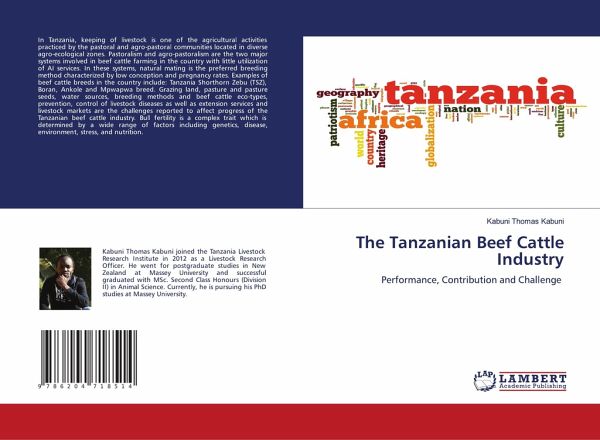
The Tanzanian Beef Cattle Industry
Performance, Contribution and Challenge
Versandkostenfrei!
Versandfertig in 6-10 Tagen
29,99 €
inkl. MwSt.

PAYBACK Punkte
15 °P sammeln!
In Tanzania, keeping of livestock is one of the agricultural activities practiced by the pastoral and agro-pastoral communities located in diverse agro-ecological zones. Pastoralism and agro-pastoralism are the two major systems involved in beef cattle farming in the country with little utilization of AI services. In these systems, natural mating is the preferred breeding method characterized by low conception and pregnancy rates. Examples of beef cattle breeds in the country include: Tanzania Shorthorn Zebu (TSZ), Boran, Ankole and Mpwapwa breed. Grazing land, pasture and pasture seeds, water...
In Tanzania, keeping of livestock is one of the agricultural activities practiced by the pastoral and agro-pastoral communities located in diverse agro-ecological zones. Pastoralism and agro-pastoralism are the two major systems involved in beef cattle farming in the country with little utilization of AI services. In these systems, natural mating is the preferred breeding method characterized by low conception and pregnancy rates. Examples of beef cattle breeds in the country include: Tanzania Shorthorn Zebu (TSZ), Boran, Ankole and Mpwapwa breed. Grazing land, pasture and pasture seeds, water sources, breeding methods and beef cattle eco-types, prevention, control of livestock diseases as well as extension services and livestock markets are the challenges reported to affect progress of the Tanzanian beef cattle industry. Bull fertility is a complex trait which is determined by a wide range of factors including genetics, disease, environment, stress, and nutrition.



